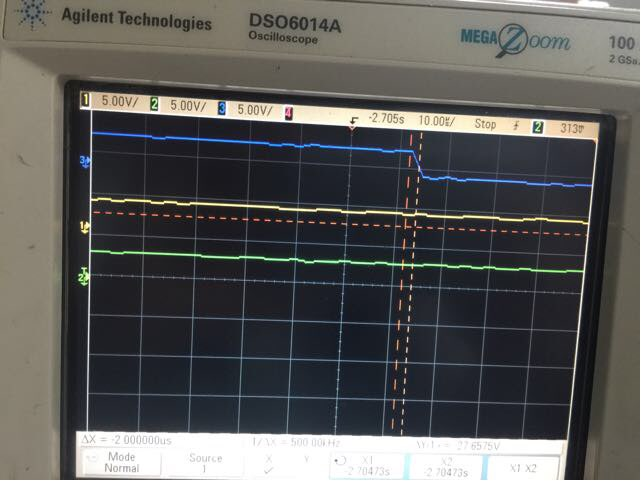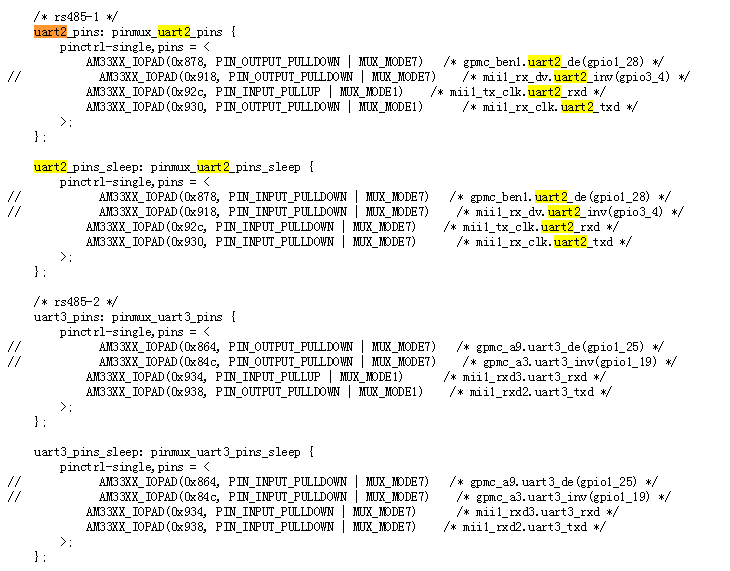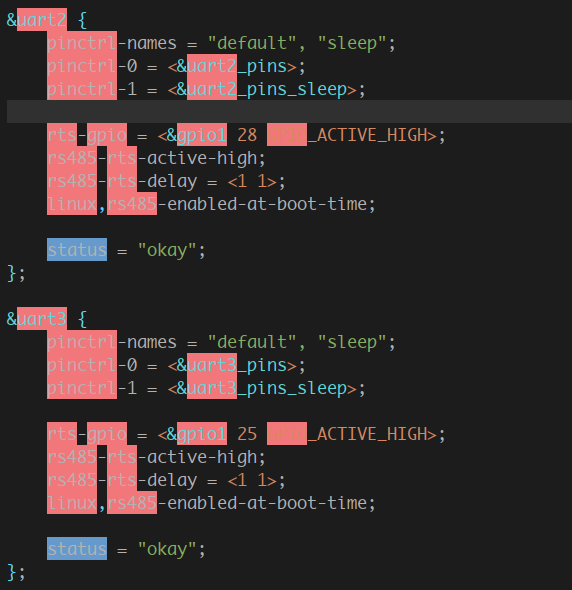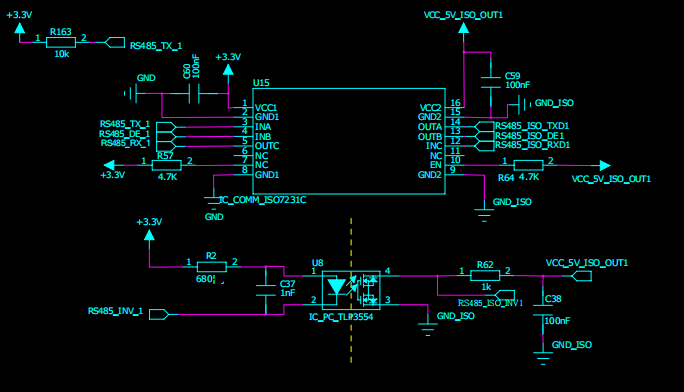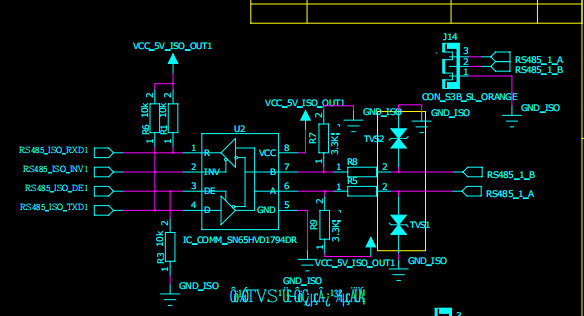After the rs485 port is enabled, the data will be sent immediately. After the test room test, the feedback does not meet the company standard. The following is the test room problem feedback description, please help us to view
Transmit, enable waveform (end of envelope to end of transmission)
At this point, it is necessary to confirm that the last bit of valid data is within the envelope. If the last data bit is low, the envelope time must include at least 1 data bit + 3us. For example, if the baud rate is 9600, :1/9600+3us=104+3=107us, if the last 1 data bit is high, (1/9600)*2+3us=211us. Note: The last 1 bit of data is low level, high level, all need to be tested, at least 10 frames of data.
At present, the envelope of 9600 baud rate ends up to 2us at the end of transmission, which does not meet the requirements.
Rs485 device tree configuration information:
RS485 part schematic:
How to overcome this issue ? Please provide me the guidance.


